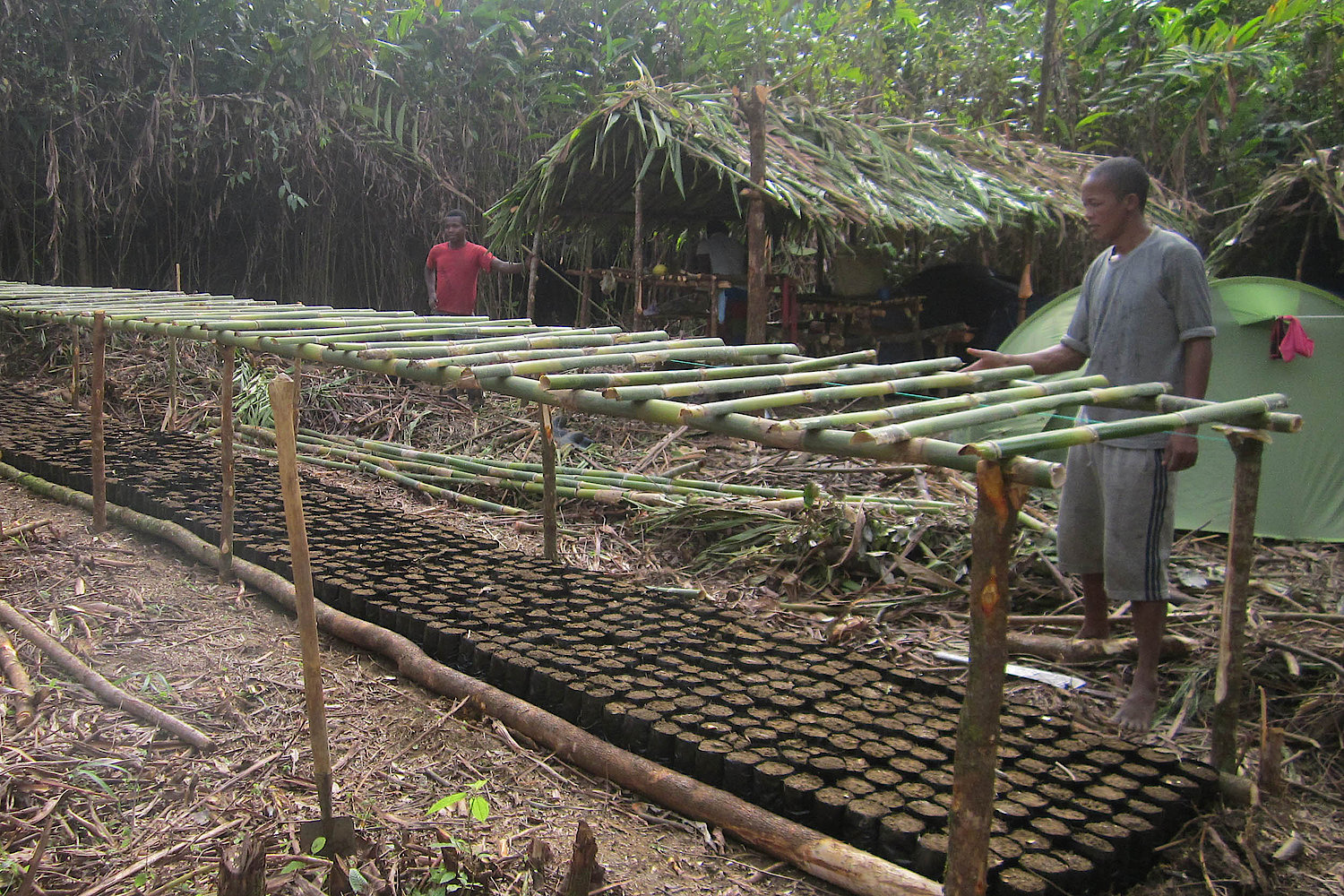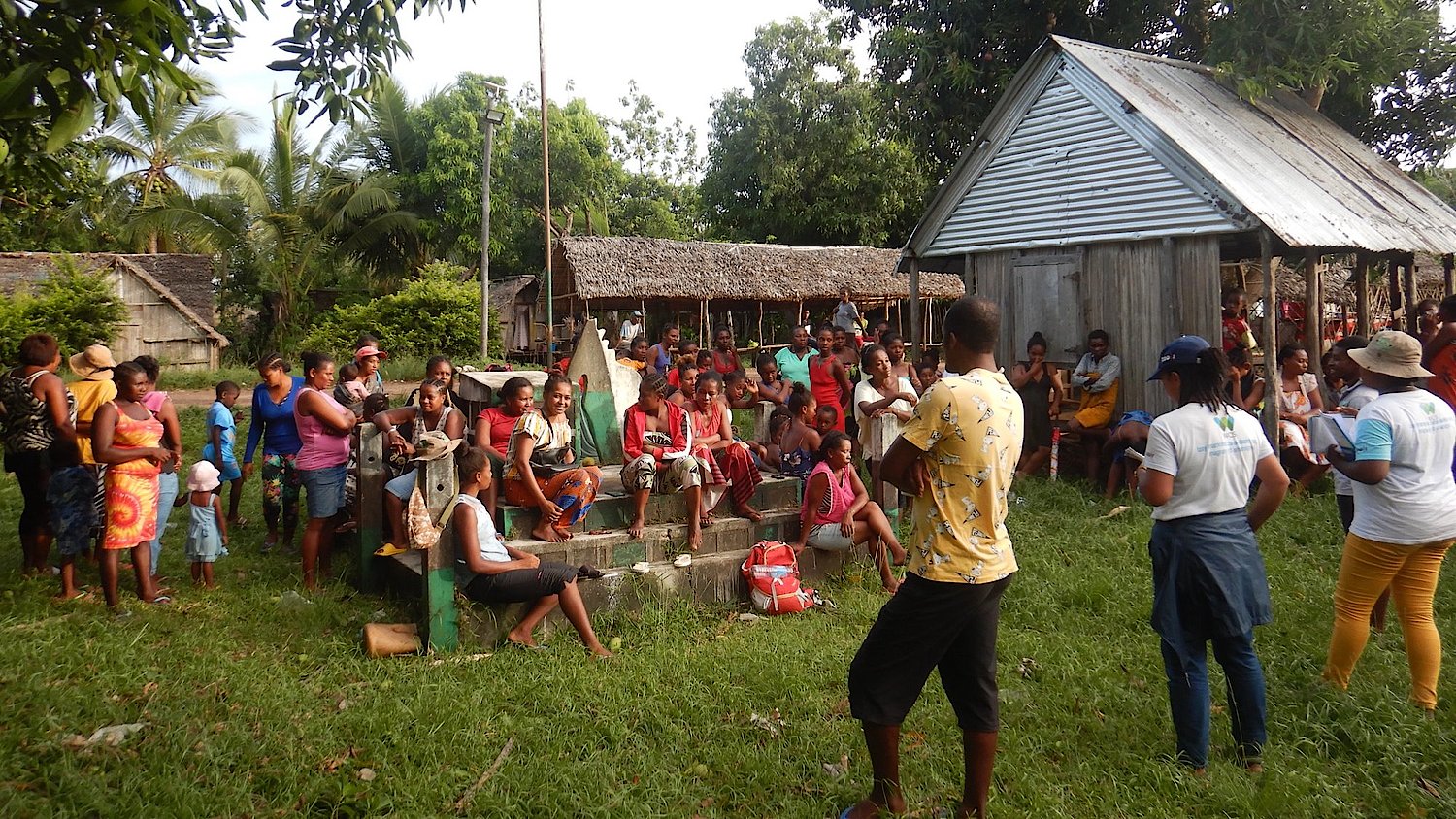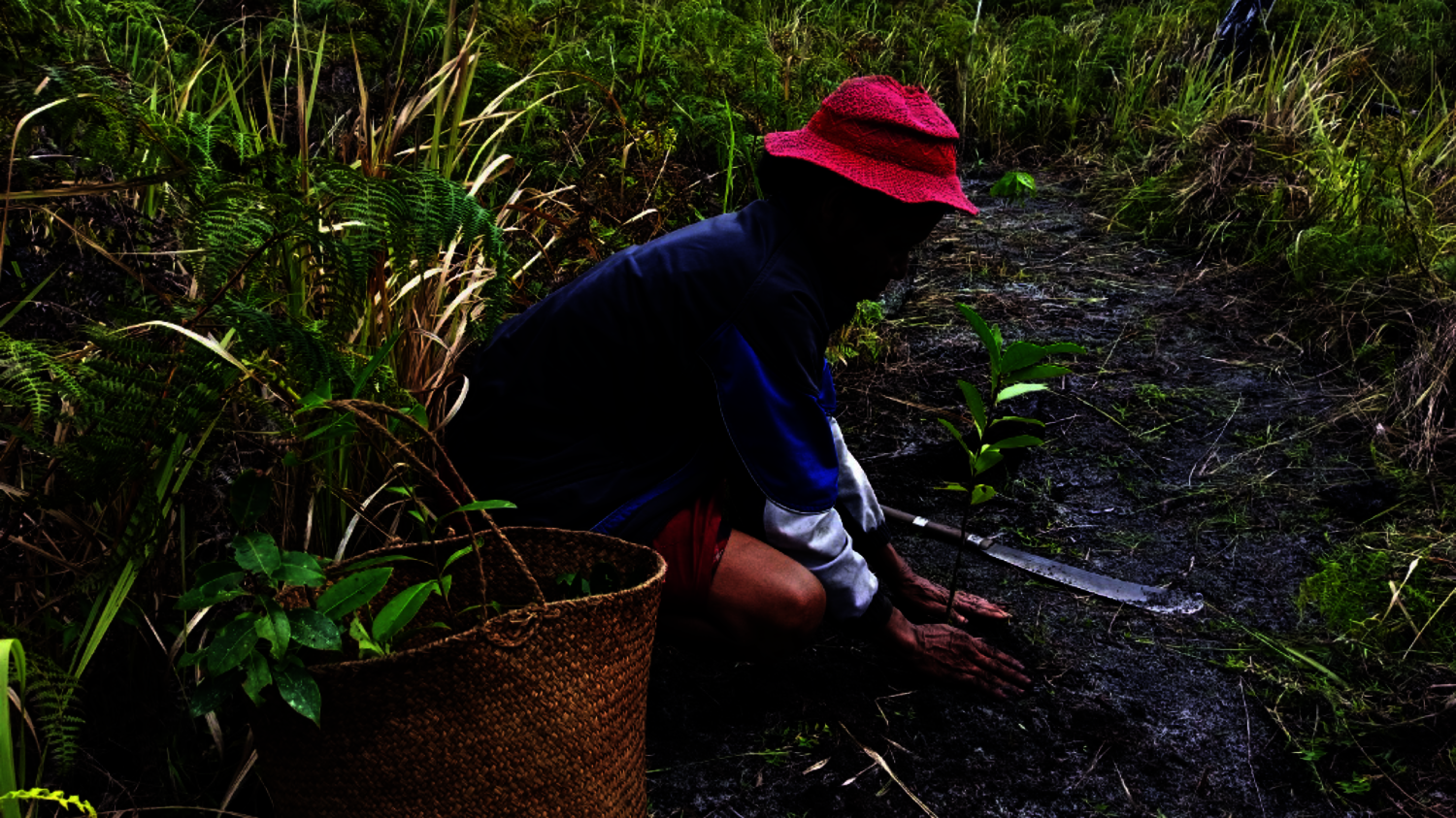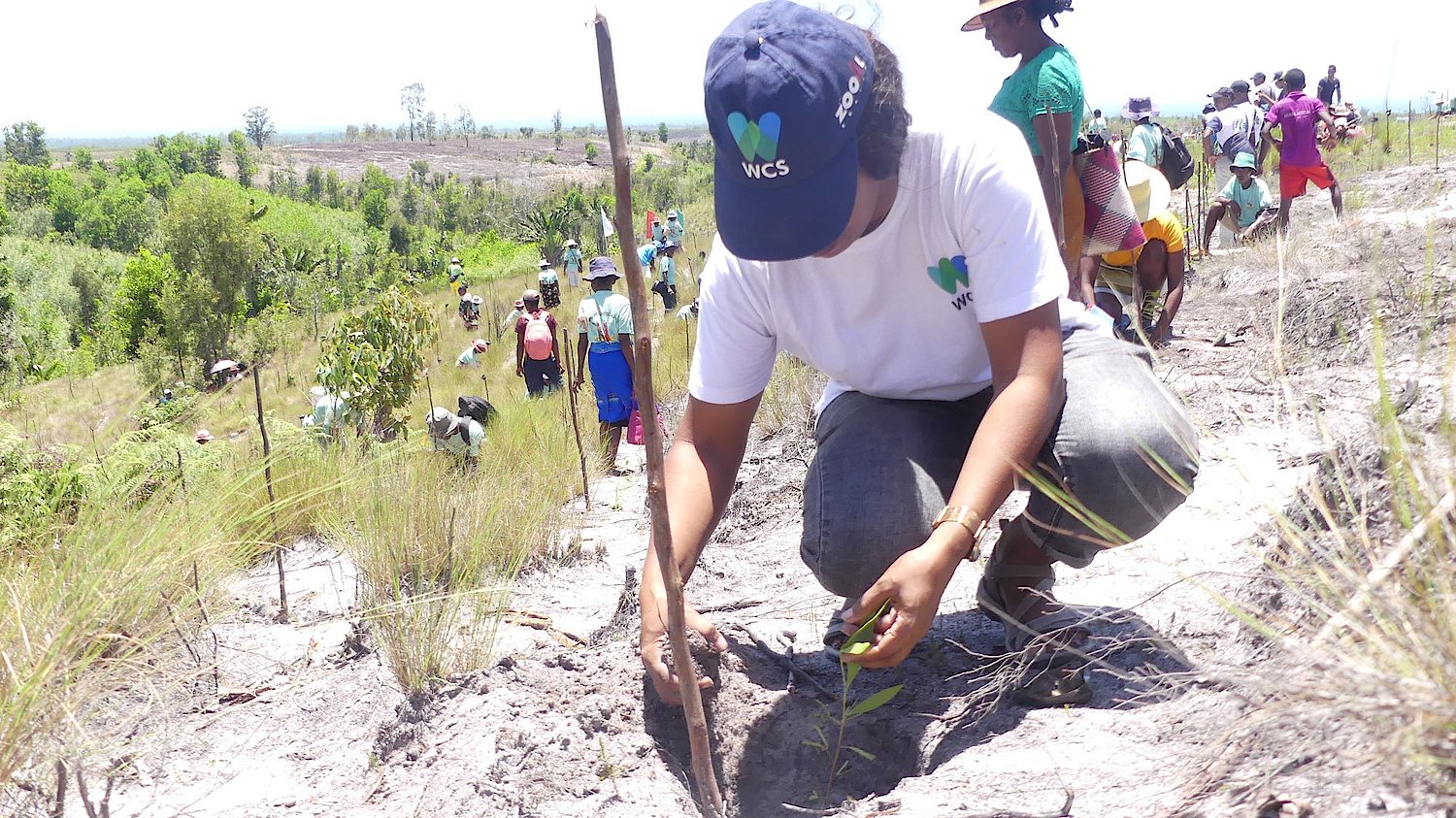The Madagascar Project
Musical Instruments and Species Protection
The illegal cutting and trade of precious woods is a major global problem, and in some places contributes to the disappearance of, or threat to, entire ecosystems. Some of these threatened woods are used for our instruments, so the protection of these woods and their ecosystems lies near to our hearts.
To ensure that this protection has a lasting effect, our projects focus on ecology, economy and social issues for the local people.
We have therefore launched two related projects:
ANDRANOANALA: Reforestation in Masoala National Park
The Masoala National Park, on the northwest coast of Madagascar, is one of five areas exhibiting the world's greatest biodiversity. However, among other activities, Illegal logging methods and “slash-and-burn” clearing contribute to degeneration and destruction of both the lowland rainforest and the coastal forest area, and sometimes lead to uncontrollable fires.
The soil layers in these areas are often thin and poor in nutrients. The arable land obtained by slash-and-burn farming quickly becomes unusable as more and more new forest is cleared to feed the approximately 9000 local people. In the worst cases, such as the current situation in southern Madagascar, the loss of natural resources can result in erosion of the landscape, dwindling waters and consequently, famine. Such scenarios must be prevented in the long term.
REFORESTATION OF DEGENERATED LANDS
In reforestation efforts, seedlings are grown from the seeds of endemic trees, and then planted at optimal spacings in the areas that have been freed from degenerate scrub. Our plan includes the planting of 140,000 trees on 200 hectares in the first five years, to produce a forest area of 319 hectares.
Rosewood and ebony – woods used in instrument building – are among the endemic species.

COOPERATION WITH THE POPULATION ANDRANOANALAS
The local population is involved in the project in a number of ways. Local schools participate in the cooperation through the provision of teaching materials that promote sustainable reforestation projects. The youth are guided in efforts to grow and plant seedlings and are taught to document and monitor their growth.
Local farmers are provided with vanilla plants and clove trees to be planted in a 5 km radius around the jungle area. Additionally, they may participate in a training program for fire protection in the forest. This mutually beneficial method is designed to protect the forest and to generate a good income and livelihood for the local population.
Our efforts will fund several environmental festivals annually, while work is being done to improve the tourist infrastructure, making this interesting biosphere accessible to as many people as possible. Information campaigns for larger cities in the surrounding area are also planned.
Do you want to do more? Since we have learned that women in particular are the guarantors of solid community structures, we have launched a sponsorship project: TAILWIND.
Please read on.
Tailwind
The Sponsorship Project of our association

Our newest sponsorship project is TAILWIND (RÜCKENWIND). 300 women in will be supported on their path to economic independence, basic medical care and social stability. Solid community structures are the guarantee for sustainable reforestation of the rainforest.
Every year 60 women from five villages receive special support. The selection is based on social criteria.
COMPONENTS OF THE FUNDING:
1. Training courses: sewing, weaving, seaweed cultivation, livestock breeding and vegetable cultivation
2. Allocation of starter packs: equipment, sewing machines, seeds, raw materials and premises
3. Veterinary service: treatment of animals and vaccinations
4. Setting up and establishing a savings system: based on the Village Saving and Loan Association model, self-managed saver model with a community-managed credit system (microcredits)
5. Improved access to medical care: advice, care, treatment, prevention and access to medication
6. Marketing: public relations, contact with dealers, promotional materials
7. Follow-up assessment: monitoring and evaluation
YOUR COMMITMENT & CONTRIBUTION
Duration of sponsorship: 5 years
Contribution: 150 euros per year
A tax deduction according to Section 10b EStG is possible. 100% of the contribution goes to our RÜCKENWIND project.
You will receive an annual status report on progress and, above all, the guarantee that everything is being implemented as described.
(PDF currently only in German available. Please contact us with any questions)

If you believe
- that this project was developed in conversation with local women
- that the needs of the women are comprehensively incorporated into the concept
- that with this one project, 300 Malagasy women and their families will be permanently brought into better living conditions
- that sustainable reforestation of the rainforest depends on the economic stability of the local people
- that independent women are the best guarantee for a country's economic development
- that investing in the Masoala rainforest project is one of the best ways to meaningfully and sustainably compensate for your own CO2 emissions
... then there is no reason to hesitate.
Take on a sponsorship - 24 of 60 have already been reserved!
The sponsors include:
Johannes Beckmann (Intendant Pfalztheater Kaiserslautern)
Dr. Peter Braun
Michael Büttler
Valentin Eichler (Münchner Philharmoniker)
Matthias Fischer (Münchner Philharmoniker)
Christiane Hausser
Maria Hecht
Kira Kohlmann (Staatsphilharmonie Rheinland-Pfalz)
Frauke Lerchbacher
Waltraud Müßig
Petra Neumahr
Pfalzphilharmonie Kaiserslautern
Philharmonisches Staatsorchester Mainz
Albrecht Puhlmann (Intendant Nationaltheater Mannheim)
Veronika Purschke
Margit Sarholz und Werner Meier (Sternschnuppe Kinderlieder)
Dr. Barbara Schober (Univ.-Prof. Dipl.-Psych., Uni Wien)
Alexander Soddy
Johanna Stämmler (Armida Quartett)
Christine Steinkrauß



